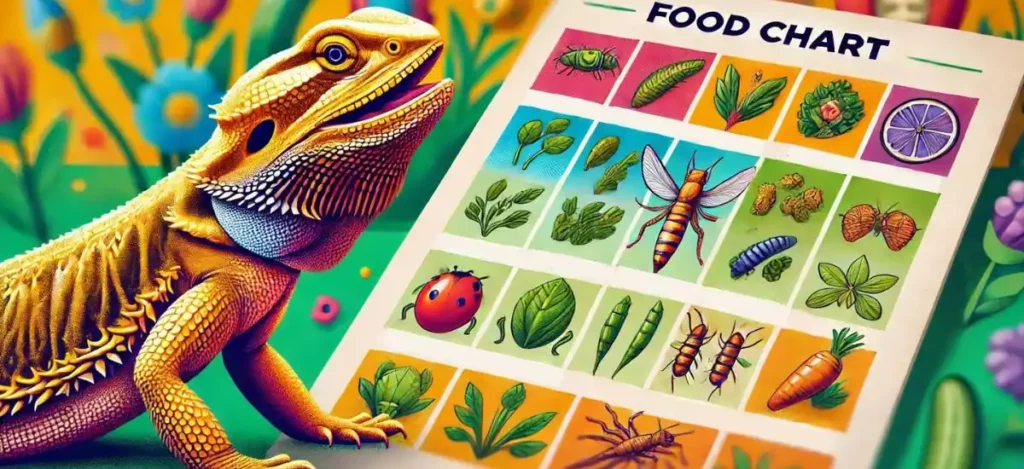Bearded dragons have captured the hearts of reptile lovers worldwide, thanks to their expressive personalities and unique appearance. As their popularity soars, it becomes crucial to ensure these charismatic creatures receive the best care, particularly when it comes to their diet. The right nutrition isn’t just about survival; it’s about helping your bearded buddy thrive and live a full, healthy life.
Understanding Bearded Dragon Dietary Needs
Bearded dragons are known for their eclectic eating habits, and understanding what makes up a balanced diet for them is essential. They are omnivores, which means they enjoy both plants and protein. The trick is to strike the perfect balance—too much of one can lead to health issues, while not enough of the other can stunt their growth. This section will guide you through mixing it up right to keep your scaled friend happy and healthy.
Essential Nutrients for Bearded Dragons
When planning your bearded dragon’s meals, think beyond just filling their belly. Several key nutrients are vital for their wellbeing:
- Calcium: Crucial for bone development and preventing metabolic bone disease.
- Vitamins A and D: Important for skin health and overall vitality. In this section, we’ll dive into these nutrients and more, ensuring you know exactly how to keep your dragon dancing in good health.
Comprehensive Bearded Dragon Food Chart
To keep things clear and simple, here’s a detailed breakdown of what to feed your bearded dragon, categorized by food type:
Vegetables and Fruits
Bearded dragons enjoy a variety of greens, but it’s crucial to get the mix right:
- Safe vegetables: Collard greens, turnip greens, and mustard greens are fantastic for daily feeding. Remember to chop them into manageable pieces.
- Occasional treats: Small amounts of fruits like apples, blueberries, and melons can be given as treats.
- Pro tip: Rotate vegetables and fruits to provide a variety of nutrients and keep mealtime exciting for your pet.
Insects and Proteins
Protein is a staple, especially for younger dragons:
- Staple insects: Crickets and mealworms are perfect for regular feeding. Ensure they are gut-loaded (fed nutritious foods) before feeding your dragon.
- Treat insects: Waxworms and superworms are high in fat and great as occasional treats.
- Feeding tips: Always dust insects with a calcium supplement to prevent nutrient deficiencies.
Foods to Avoid
Some foods can be harmful to bearded dragons:
- Avoid at all costs: Avocado, rhubarb, and iceberg lettuce are harmful and should never be fed to your bearded dragon.
- Why they’re bad: These foods can cause serious health issues ranging from digestive upset to potentially fatal conditions.
Feeding Schedule for Bearded Dragons
Understanding when and how much to feed your bearded dragon is as important as knowing what to feed them. Here’s how to manage their diet based on age:
- Juveniles (under 12 months): Feed them insects three times a day with a daily offering of vegetables. Young dragons need more protein to support their rapid growth.
- Adults (over 12 months): Reduce insects to once a day and offer vegetables daily. Mature dragons require more fiber and fewer calories to prevent obesity.
Seasonal Feeding Adjustments
Just like us, bearded dragons can benefit from seasonal diet changes:
- Summer: Increase water-rich vegetables to help with hydration.
- Winter: Incorporate more high-fiber vegetables to support digestion during less active months.
- Tip: Adjust the quantity slightly to prevent weight gain during less active periods.
Frequently Asked Questions
Q1. How often should I feed my bearded dragon?
Ans: Juveniles: Three times a day for insects, with a constant supply of fresh vegetables.
Adults: Once a day for insects, with daily fresh vegetables.
Q2. Can I feed my bearded dragon wild-caught insects?
Ans: It’s not recommended due to the risk of pesticides and parasites.
Q3. What should I do if my bearded dragon won’t eat?
Ans: Check for stressors in their environment, ensure proper temperature, and consult a vet if the problem persists.
Conclusion
Feeding your bearded dragon a balanced diet is key to their health and happiness. By following the food chart and guidelines provided, you can ensure your pet thrives. Always remember to consult a vet for personalized advice tailored to your dragon’s specific needs.

